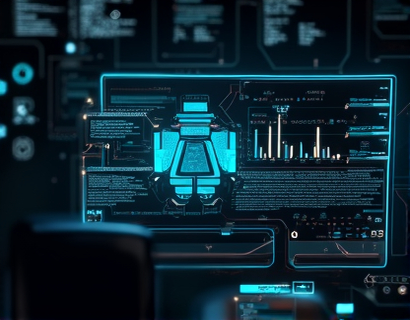Maximize Business Growth with Integrated Management: A Complete Solution for Operational Efficiency and Strategic Success
In today's fast-paced business environment, organizations of all sizes face numerous challenges that can hinder their growth and operational efficiency. From managing complex supply chains to optimizing resource allocation and ensuring strategic alignment, the path to success is often fraught with obstacles. A comprehensive management solution can serve as a catalyst for transformation, streamlining operations, boosting productivity, and driving strategic growth. This article delves into the importance of integrated management systems and how they can help businesses achieve operational excellence and reach their full potential.
Understanding Integrated Management
Integrated management refers to a holistic approach that combines various business functions and processes into a cohesive system. This approach ensures that all departments and teams work in harmony, leveraging technology and best practices to optimize performance. An integrated management solution is designed to seamlessly connect different aspects of a business, such as finance, human resources, operations, and supply chain management. By doing so, it provides a unified view of the organization, enabling better decision-making and more efficient resource utilization.
The Need for Comprehensive Business Management Solutions
In the past, businesses often relied on siloed systems and manual processes, leading to inefficiencies, errors, and missed opportunities. Today, the landscape has changed dramatically. The rise of digital technologies, big data, and artificial intelligence has transformed the way businesses operate. To stay competitive, organizations must adopt comprehensive management solutions that can handle the complexity and scale of modern operations. These solutions offer a range of benefits, including:
- Enhanced visibility across all business functions
- Improved collaboration and communication
- Real-time data analytics and insights
- Automated workflows and reduced manual errors
- Scalability to accommodate growth
By addressing these areas, comprehensive management solutions help businesses overcome common challenges and unlock new opportunities for growth and success.
Key Components of an Integrated Management System
A robust integrated management system comprises several key components that work together to create a seamless and efficient business operation. These components include:
1. Enterprise Resource Planning (ERP)
ERP systems are the backbone of integrated management, consolidating core business processes into a single, unified platform. Key modules typically include:
- Finance and accounting
- Human resources
- Supply chain and inventory management
- Customer relationship management (CRM)
- Project management
By integrating these functions, ERP systems provide a comprehensive view of the business, enabling better planning, forecasting, and decision-making.
2. Business Intelligence and Analytics
Business intelligence (BI) tools are essential for transforming raw data into actionable insights. These tools offer advanced analytics, reporting, and visualization capabilities that help organizations make data-driven decisions. Key features include:
- Real-time data monitoring
- Predictive analytics
- Customizable dashboards
- Integration with other systems
With BI tools, businesses can identify trends, optimize operations, and gain a competitive edge.
3. Supply Chain Management
Efficient supply chain management is crucial for ensuring that products reach customers on time and at the right cost. Integrated management solutions provide tools to optimize every stage of the supply chain, from procurement to distribution. Features may include:
- Demand forecasting
- Inventory optimization
- Supplier management
- Logistics and transportation planning
By streamlining the supply chain, businesses can reduce costs, improve service levels, and enhance customer satisfaction.
4. Project Management
Project management tools are vital for coordinating complex projects and ensuring they are completed on time and within budget. Integrated management systems offer features such as:
- Task and timeline management
- Resource allocation
- Collaboration and communication tools
- Risk management
These tools help organizations stay organized, track progress, and deliver successful outcomes.
5. Human Capital Management
Human resources play a critical role in any organization's success. Integrated HR management systems streamline processes such as recruitment, performance management, and employee development. Key benefits include:
- Centralized employee data
- Automated compliance and reporting
- Enhanced talent management
- Improved employee engagement
By leveraging HR technology, businesses can attract, retain, and develop top talent, driving long-term success.
Benefits of Integrated Management for Business Growth
The implementation of an integrated management system offers numerous benefits that can significantly contribute to business growth and operational efficiency. Some of the most notable advantages include:
1. Enhanced Operational Efficiency
By automating repetitive tasks and streamlining processes, integrated management systems reduce manual errors and free up staff to focus on higher-value activities. This leads to increased productivity and efficiency across the organization.
2. Improved Decision-Making
Access to real-time data and advanced analytics empowers leaders to make informed decisions quickly. This agility is crucial in a rapidly changing business environment, allowing organizations to adapt and thrive.
3. Cost Savings
Integrated systems eliminate redundancies and optimize resource utilization, leading to significant cost savings. By reducing waste and improving efficiency, businesses can allocate more resources to growth initiatives.
4. Better Customer Experience
Streamlined operations and improved service levels directly translate to a better customer experience. Integrated management solutions help businesses deliver products and services on time, meet customer expectations, and build loyalty.
5. Strategic Alignment
With a unified view of the business, leaders can align strategies across departments and ensure that all efforts are directed towards common goals. This alignment is essential for achieving long-term success and sustainable growth.
Implementing an Integrated Management Solution
Implementing an integrated management solution requires careful planning and execution. Here are some key steps to consider:
1. Assess Current Processes
Begin by conducting a thorough assessment of existing processes and identifying areas for improvement. This will help in determining the specific needs and requirements of your organization.
2. Define Objectives
Clearly define the goals and objectives of the integrated management system. This could include improving operational efficiency, reducing costs, or enhancing customer satisfaction. Having clear objectives will guide the implementation process and measure success.
3. Select the Right Solution
Research and evaluate different integrated management solutions to find one that aligns with your business needs. Consider factors such as scalability, customization options, and vendor support. It's important to choose a solution that can grow with your business.
4. Plan the Implementation
Develop a detailed implementation plan that includes timelines, resources, and responsibilities. Ensure that all stakeholders are involved and informed throughout the process. Training and support are crucial to ensure a smooth transition.
5. Execute and Monitor
Once the system is implemented, closely monitor its performance and make adjustments as needed. Continuous improvement is key to maximizing the benefits of the integrated management solution.
Case Studies and Success Stories
Several organizations have successfully implemented integrated management solutions, achieving remarkable results. Here are a few examples:
Case Study 1: Manufacturing Company
A mid-sized manufacturing company faced challenges with inventory management and production scheduling. By implementing an integrated ERP system, they achieved:
- 25% reduction in inventory costs
- 15% increase in production efficiency
- Improved order fulfillment rates
These improvements led to higher customer satisfaction and increased market share.
Case Study 2: Retail Chain
A national retail chain implemented an integrated management solution to streamline its supply chain and enhance customer service. The results were:
- 10% reduction in supply chain costs
- 20% improvement in customer satisfaction scores
- Faster response to market trends
The retail chain was able to optimize its operations and stay competitive in a dynamic market.
Conclusion
In conclusion, integrated management solutions offer a comprehensive approach to optimizing business operations and driving strategic growth. By streamlining processes, enhancing visibility, and leveraging advanced analytics, organizations can overcome challenges, improve efficiency, and achieve their goals. As businesses continue to evolve, the importance of integrated management systems will only grow. Embracing these solutions is not just a choice but a necessity for those aiming to succeed in the modern business landscape.










































